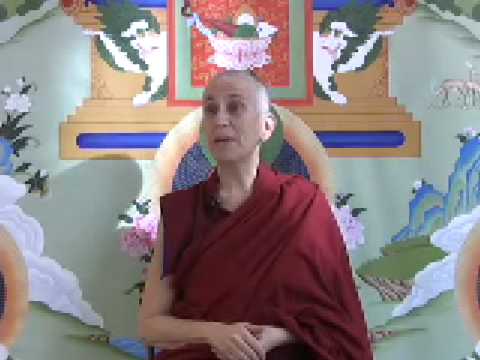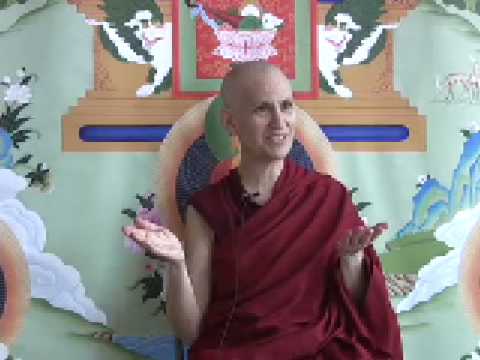Verse 33-2: The kindness of others
Part of a series of talks on the 41 Prayers to Cultivate Bodhicitta from the Avatamsaka Sutra (the Flower Ornament Sutra).
- How we stay alive due to the kindness of others
- Due to others’ kindness we are able to do the things we can do
- Appreciating the efforts of others
41 Prayers to cultivate bodhicitta: Verse 33-2 (download)
“May all beings repay the kindness of all Buddhas and bodhisattvas.”
This is the prayer of the bodhisattva when seeing someone repaying another’s kindness.
I thought I’d talk a little bit about the kindness of others, and then the kindness of the buddhas and bodhisattvas. There are different kinds of kindnesses but we rely on both kinds of kindnesses to become enlightened. With one or with the other, not with both, then no enlightenment.
The kindness of sentient beings, which we will talk about that some more on a Thursday night teachings. It’s a fact that we stay alive due to the kindness of others. We have a precious human life due to the kindness of our parents and all the people who took care of us when we were little. When we see parents now taking care of their kids, we never think of ourselves like one of those little babies, with somebody having to change our diapers, when somebody was waking up with us in the middle of the night, somebody having to soothe us when we fell down and went boom, all the little things that parents do for kids. It’s hard for us to think of our self in that role and somebody having done of all of that for us. Teaching us how to speak, and teaching us not to stick our fingers in a electrical plug, and taking us to the doctor when we had the measles, and teaching us to ride a bicycle, and consoling us when other kids threw sand in our faces and called us names, reprimanding us when we called other kids name and threw sand in their faces.
We have the ability to become adults due to the kindness of our family members and friends who brought us up when we were kids, and also due to the kindness of our school teachers. As anyone who has ever worked as a public school teacher knows, it is one of the most disregarded and unappreciated professions. I think it’s because every one of us has gone through school. People don’t appreciate teachers very much and yet our education is due to them. We read and write every single day. How do we know how to do it? Because people taught us. All of these skills that we just take for granted came because other people cared enough about us to teach us.
These are common skills that we are fortunate to have. Whatever unique uncommon skills you have—if you’re a computer whiz, or an artist, or an athlete, whatever thing you excel in—we have those skills as well because other people taught us.
All of the things we use on a daily basis all came from the kindness of others. We very seldom walk into the house and say “thank you” to all the people who built it. Even though we’re seeing people build Gotami house, once we inhabit it will we, when we walk in, mentally say “thank you” to all the people who built it? Or are we going to say, “At last, we’re done building the thing.” At the opening ceremony, we’re going to have the little whistles we blow, and hats, and banners.
We should really appreciate the efforts of people who do all of the things that enable us to stay alive, that enable us to do all of the things that we enjoy doing instead of having to do everything ourselves. You know how we all enjoy doing particular things, and we don’t enjoy doing other things, and some things we don’t even have the ability to do. It’s due to the kindness of others that we can do the things that we excel in, and that we enjoy without having to build our own car, and plow our own fields, and fix our own computer, or any of these things. It’s due to the kindness of others that we have time to do other things. It’s something to really appreciate and be grateful for.
When we feel that we have been the recipient of a great deal of kindness, then automatically the wish to repay it comes. We have to spend quite a bit of time actually thinking about others’ kindness to us. Sometimes our ego really resists that. We would much prefer to think of our kindness to them, and how they should do things for us. The Dharma teaches us to think of their kindness to us and to create a wish to repay that, in big ways or small ways, however we think is fit, which is a topic for another talk.
Venerable Thubten Chodron
Venerable Chodron emphasizes the practical application of Buddha’s teachings in our daily lives and is especially skilled at explaining them in ways easily understood and practiced by Westerners. She is well known for her warm, humorous, and lucid teachings. She was ordained as a Buddhist nun in 1977 by Kyabje Ling Rinpoche in Dharamsala, India, and in 1986 she received bhikshuni (full) ordination in Taiwan. Read her full bio.


